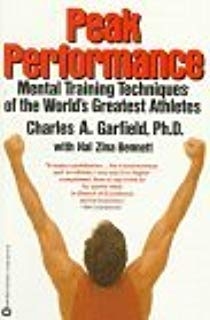yep. im going to say there is some pure gold in that book. Chap 2 from sections 12-17 has many nuggets. of course people must form their own philosophy but mine is quickly coming together. (wish id worked it out 30 years ago lol)
http://www.pianofundamentals.com/book/en/1.II.13
its great because he touches both ends of the spectrum. The good AND bad of practicing fast AND slow.
" Playing so fast that you start to feel stress and make mistakes will not improve technique because you are just practicing mistakes and acquiring bad habits. Forcing the fingers to play the same way faster is not the way to increase speed."
So he is against trying to force things too quickly and thus just ingraining mistakes, but he is also against endlessly repeating something slowly that might not work when u speed up.
“If you do not make significant progress in a few minutes, you are probably doing something wrong – think of something new. Students who use the intuitive method are resigned to repeating the same thing for hours with little visible improvement. That mentality must be avoided in order to learn faster.”
“the need to attain speed quickly and to practice accurately become contradictory. The solution is to constantly change the speed of practice; do not stay at any one speed for too long. For very difficult passages that require skills you don’t already have, there is no alternative but to bring the speed up in stages. For this, use speeds that are too fast as exploratory excursions to determine what needs to be changed in order to play at such speeds. Then slow down and practice those new motions.”
Basically he says to try something faster than you current manageable best speed to see how it goes and what needs to be changed to get to that speed…but only do a few reps! lol
I checked out a piano forum and they were discussing the book. Naturally some loved it and some hated it. In the end though they came into agreement that the “slow to fast ratio” of practice should be about 2/3rd slow and 1/3 fast with some saying as much as 9 parts slow practice to 1 part fast.
I have been trying to work on some licks in desc thirds starting on the top string but, true to my old self, id try a few times and when it fell off the tracks id leave it for something else. So I ran across that book last Thurs. So I decided to try some of the techniques.
So on Friday I started with the few good notes I had to start with, which was basically going to end up being a descending D mixolydian lick working its way down to end on an e note. So basically I sat there and tried to work out an exact fingering. I tried several different ways, especially for the goofy b to g string etc.
came up with this in 16ths:
e—10-14-10-12–10
b-------------------13–12-13-10-12–10
g----------------------------------------12–11-12-9-11—9
d------------------------------------------------------------12–10-12-9-10—9
a--------------------------------------------------------------------------------12–10-12-9-10-7
pretty much just desc thirds with the exception of the first note lol
well obviously you see its a tangle of back and forth and lots of double escaping etc. Luckily I have had good success on the Paul Gilbert lick lately, partially by using lots of vain repetitions lol
So I worked out the fingering on Fri. worked on it some slowly etc. knowing me i tried it fast at several point too, or at least portions of it. (I also worked out a simpler sextuplet lick on 2 strings which I was closer to being fast on. so i was splitting my time between 2 licks)
Saturday I went to work and actually did mental practice on the lick lol. That was a first for me. Its interesting because you have to decide what to visualize. visualize the tab? (nah). the fingers? the fretboard??but from what point of view?
so at work Sat I wrote out the tab and wrote lines to divide it into sections of 4 notes and I worked on it mentally during the day
Came home Sat just dead tired and only managed 30 minutes practice, splitting the time between my 2 new licks
Today I did 50 mins of practice this morning. some slow etc, then tried fast a few times. At one point the lick just popped out WAY faster than I thought I could do. This was near the end of that session this morning. So now I will gradually up the practice speed without pushing too fast into mistakeland.
So all told, on Fri my diary shows 80 mins total practice time. This was partially spent working out the 2 licks. Then grooving them slowly. Sat I did mental practice at work then a very tired 30 mins at night. This morning a 50 min session and basically I now have a complicated desc thirds pattern grooved pretty well.
Im sort of sold.
of course now I need to repeat the method and figure out how to optimize things etc
In the “slow vs fast” philosophy wars, I see the need for both but im heavily leaning towards the “DONT GROOVE MISTAKES” side of things. I think the whole “omg, slow practice form isnt the same as fast form” mantra is way overblown, especially for advanced players and/or us modern folks who now have more conscious knowledge of mechanics. Maybe the slower form isnt exactly the same…neither is a form where im making 50% mistakes!
The dude who wrote the book is like 80 something now lol. I might still write him with some questions hehe

